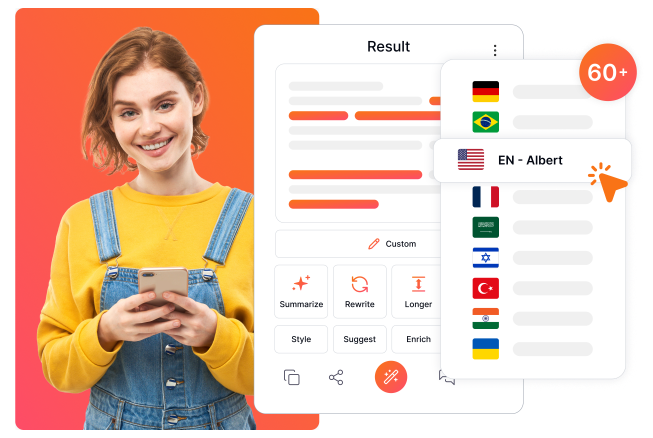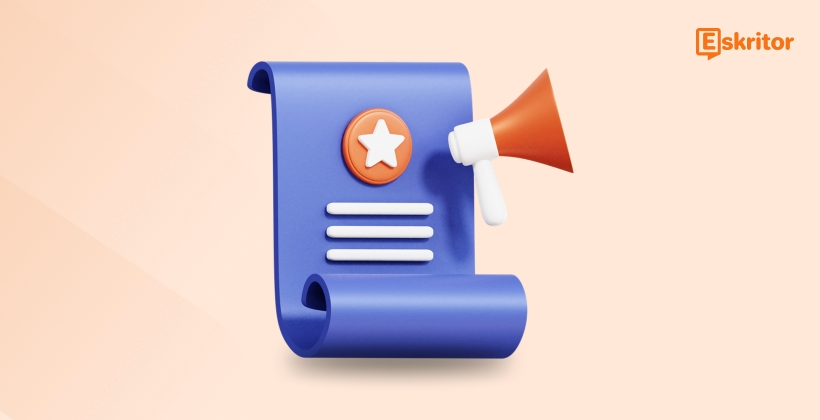AI Writing Tools vs. Human Writers – A Comparative Analysis
AI Writing Tools vs. Human Writers – A Comparative Analysis
Blog Article
AI Writing Tools vs. Human Writers – A Comparative Analysis
Synthetic intelligence (AI) publishing engineering has evolved fast in the last decade, reshaping the way we create and connect to published content. From grammar correction instruments to AI-generated novels, the possibilities appear limitless. But wherever precisely is this technology heading? Let's explore the innovations, problems, and possible future of AI Editing.

How AI Writing Engineering Works Nowadays
At their core, AI publishing engineering depends on Natural Language Handling (NLP) and device learning. These systems allow types to know, produce, and improve individual language. Instruments available nowadays do well at jobs like:
1. Material Formation
AI has reached a place where it could produce complete website threads, social media marketing sayings, and also news articles. Some types can handle mimicking individual writing types therefore successfully that unique between AI- and human-written content is now increasingly difficult.
2. Grammar and Design Suggestion
AI-powered writing personnel don't just check for grammar and spelling errors; additionally they offer ideas to enhance tone, quality, and sentence structure, making complicated publishing available to an extensive audience.
3. Message Evaluation
AI may evaluate the mental tone of an item, enabling corporations to examine how their communications will resonate with readers. This really is particularly of use in advertising and client interaction.
The Current Traits in AI Writing Technology
A few traits are surrounding another stage of AI-powered publishing methods:
• Personalization
AI publishing engineering is increasingly effective at tailoring material to specific preferences. Models may conform to a user's publishing model, ensuring the production feels authentic.
• Multilingual Features
Many AI resources are expanding their worldwide achieve by providing enhanced interpretation characteristics and support for multiple languages.
• Increased Study Functions
AI methods today get the capacity to analyze large amounts of data and provide fact-checked, well-researched publishing in moments, simplifying the method for specialists in industries like law, financing, and journalism.
What the Future Keeps for AI Publishing Technology
1. Improved Creativity
While current AI is adept at generating material, its creativity remains limited by styles within their education data. Potential AI isn't only expected to aid but to produce original, insightful works that problem individual imagination.
2. Easy Effort
Envision an AI that performs along side you in real-time, doing your phrases, completing stay edits, and also brainstorming ideas. AI writing resources may possibly shortly become co-authors, enabling imagination to movement uninterrupted.
3. Honest and Accessible Style
With rising problem about plagiarism, misinformation, and tendency, developers work toward more transparent AI teaching operations and moral implementation. Potential instruments will more than likely provide more detailed citations and measures to make certain accountability.
Challenges and Considerations
The progress of AI writing engineering is not without hurdles, including:
• Ethical Problems

Who possesses content produced by AI? Just how can we guarantee AI-generated content isn't spreading misinformation? These debates stay unresolved.
• Human-AI Balance
Will AI match human creativity or totally replace specific roles? Several authors and musicians worry about their relevance in a AI-driven world.
• Supply Separate
Not all agencies or parts have equal usage of cutting-edge AI tools, raising issues concerning the impact with this technology on worldwide inequality.
Adjusting the Way We Create
AI publishing engineering remains in their infancy compared to their potential. Whether you are a student crafting documents, a content marketer targeting particular readers, or a author seeking motivation, AI tools will continue steadily to revolutionize the writing process. The next decade promises breakthroughs that combination individual ingenuity with unit intelligence, making a future where writing is more efficient, accessible, and impactful than actually before.
Report this page